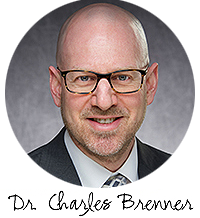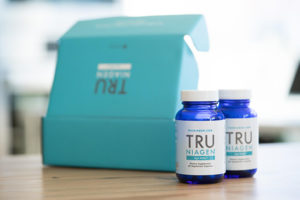This is a sponsored post. ChromaDex compensated FabOverFifty with an advertising sponsorship to write it. Regardless, we only recommend products or services that we believe will be helpful for our readers. All insights and expressed opinions are our own. —Geri Brin
Driverless cars and virtual reality headsets may be 21st-century technological marvels, but they’re no match for our remarkable human body of interconnected systems that work together to keep us alive—and healthy! Even more phenomenal, 24-hour “clocks” in every one of our cells and tissues impact the way all our organs work, from our heart to our liver, and one master clock in our brain leads the way. Although most of us happily said sayonara to science back in high school, it pays to get a basic understanding of what makes our internal clocks tick, and how to help keep them on time. Because if the clocks go haywire from the way we’re living our lives, we could be jeopardizing our well-being.
phenomenal, 24-hour “clocks” in every one of our cells and tissues impact the way all our organs work, from our heart to our liver, and one master clock in our brain leads the way. Although most of us happily said sayonara to science back in high school, it pays to get a basic understanding of what makes our internal clocks tick, and how to help keep them on time. Because if the clocks go haywire from the way we’re living our lives, we could be jeopardizing our well-being.
Of course, we’re not talking about microscopic Bulova clocks, but rather biological clocks that cause all organisms on earth, plants to animals (and that includes you and me), to respond to the daily cycle of sunrise, sunset, sunrise. In layman’s terms, our master brain clock receives daily light and dark information through our retinas, and transmits these signals to all the other clocks by secreting hormones and through other chemical processes. Our 24-hour “circadian rhythms” can influence our sleep-wake cycles, eating habits and digestion, body temperature and other vital bodily functions.
>> Learn how you can regulate your circadian rhythm today
At daylight, when we’re lowest on energy after a night’s sleep, a hormone called ghrelin kicks in. Known as the “hunger hormone,” it stimulates our appetite, influences the amount of food we consume, and promotes fat storage. “When we wake up hungry, we’re motivated to get up and get food for increased energy,” explained Dr. Charles Brenner, a Stanford-educated PhD, who studies cells and aging. Another hormone, called leptin (known as the “satiety hormone”), signals to us that our tummy is full.
 “Then, when most of us sleep, our brains clean up a bunch of toxic waste that accumulates over the course of a day, and the chemical life-maintaining processes taking place inside our bodies slow down,” Dr. Brenner added. We continue to burn fuel when we’re asleep, but since we’re not eating all night, our body converts glycogen stored in our liver and muscles into blood sugar for energy during the overnight period.
“Then, when most of us sleep, our brains clean up a bunch of toxic waste that accumulates over the course of a day, and the chemical life-maintaining processes taking place inside our bodies slow down,” Dr. Brenner added. We continue to burn fuel when we’re asleep, but since we’re not eating all night, our body converts glycogen stored in our liver and muscles into blood sugar for energy during the overnight period.
“It’s indisputable that we function best when we get enough sleep. Its restorative properties help make us high functioning when we’re awake,” Dr. Brenner said.
WHY WE ABSOLUTELY NEED A GOOD NIGHT’S SLEEP
Consider some of the beneficial properties of sleep, according to the National Heart, Lung, and Blood Institute:
- Sleep helps heal and repair heart and blood vessels; ongoing sleep deficiency seems to be associated with increased heart rate and blood pressure, as well as with higher levels of certain chemicals linked with inflammation, which may put extra strain on your heart.
- Sleep helps maintain a healthy balance of those hormones I mentioned before that make us feel hungry or full.
 When we don’t get enough sleep, our level of ghrelin goes up and our level of leptin goes down, making us feel hungrier than when we’re well-rested.
When we don’t get enough sleep, our level of ghrelin goes up and our level of leptin goes down, making us feel hungrier than when we’re well-rested. - Sleep affects how our body reacts to insulin, the hormone that controls our blood glucose (sugar) level. Sleep deficiency results in above-average blood sugar levels, which may increase the risk for diabetes.
- Sleep helps our immune system to stay healthy, so our body is well-defended against foreign or harmful substances. It’s harder to fight common infections when you don’t get adequate sleep.
AND, HOW TO HAVE A GOOD NIGHT’S SLEEP
Now think about some of the actions that will help give you good “sleep hygiene,” namely seven or more hours of sleep per night that you need for health and wellbeing, according to a joint consensus statement from the American Academy of Sleep Medicine and the Sleep Research Society.
- Avoid eating late at night because your body is more likely to store those calories as fat and you’ll gain weight rather than burn the calories as energy.
- Don’t drink caffeine late in the day or overindulge in alcohol. We tend to have a drink to make us sleepy, but when
 the alcohol wears off around 3 a.m., we’re wide awake.
the alcohol wears off around 3 a.m., we’re wide awake. - Turn off your cell phone and computer. These devices emit blue light, which signals morning (sunrise is blue light and sunset is red light). They also disrupt melatonin production, so we don’t sleep as well as we did before the technological revolution.
- Go to sleep in a dark, quiet room that’s not too hot, which will help you relax your mind and body. A cool room is best.
- Try to go to sleep around the same time each night.
- If you can’t fall asleep, don’t lie in bed tossing and turning. Get up and read a book (but not on a device).
Take a daily dietary supplement of nicotinamide riboside (NR), a cutting-edge form of vitamin B3 that helps your cells replenish nicotinamide adenine dinucleotide (NAD). Incredibly important to all of your living cells, NAD helps regulate circadian rhythm and increases energy production at the cellular level.
WHY NAD IS TRULY A BIG DEAL
Scientists have discovered that NAD is so important because it allows our cells to convert the fats, proteins, and carbohydrates we eat into the energy we need to stay in top shape. NAD also helps to activate longevity genes, which control cellular aging, as well as all those chemical and biological processes that help us stay fit and healthy, said Dr. Brenner. It was Dr. Brenner, in fact, who actually discovered the connection between NR and NAD, and is the Chief Scientific Advisor behind TRU NIAGEN® from ChromaDex, the worldwide patent-holder and innovator behind the ingredient.
Studies in mice have shown that there are two NAD peaks per day, produced during its own circadian cycles: A daytime NAD peak is largely driven by the food we eat in the morning (minimally processed whole foods are best), and that’s followed by a nighttime peak. “We know that NAD daily cycles are required for essentially all aspects of metabolism, in your liver, heart, brain, immune system, peripheral nervous system, and in your blood,” explained Dr. Brenner.
Maintaining a regular sleep and work schedule, moderate exercise, staying out of the sun, and limiting alcohol intake all can help retain and increase the NAD levels we need for healthy, strong cells. But, and this is a BIG BUT, our levels of NAD naturally decline as we age. With the inevitable stresses of life, this decline may speed up anytime we eat too much, drink too much, work too much, stay in the sun for too long, or don’t sleep well. This means basically every time we’re normal human beings. So, it makes complete sense to take a supplement with NR, which will give your body a proven source of NAD.
By boosting NAD you support your circadian functions, which may help you to sleep better, have better digestion, better mental capacity and support whole body wellness.
I’ve been taking Tru Niagen every single morning for the past 18 months, and I feel wonderful—from overall feelings of well-being and improved sleep quality to consistent energy. I can think of only a single time I’ve napped, too. A single dose of Tru Niagen produces clinically significant increases in NAD levels, supporting our desires to age the best we can!
To learn how you can regulate your circadian rhythm today

